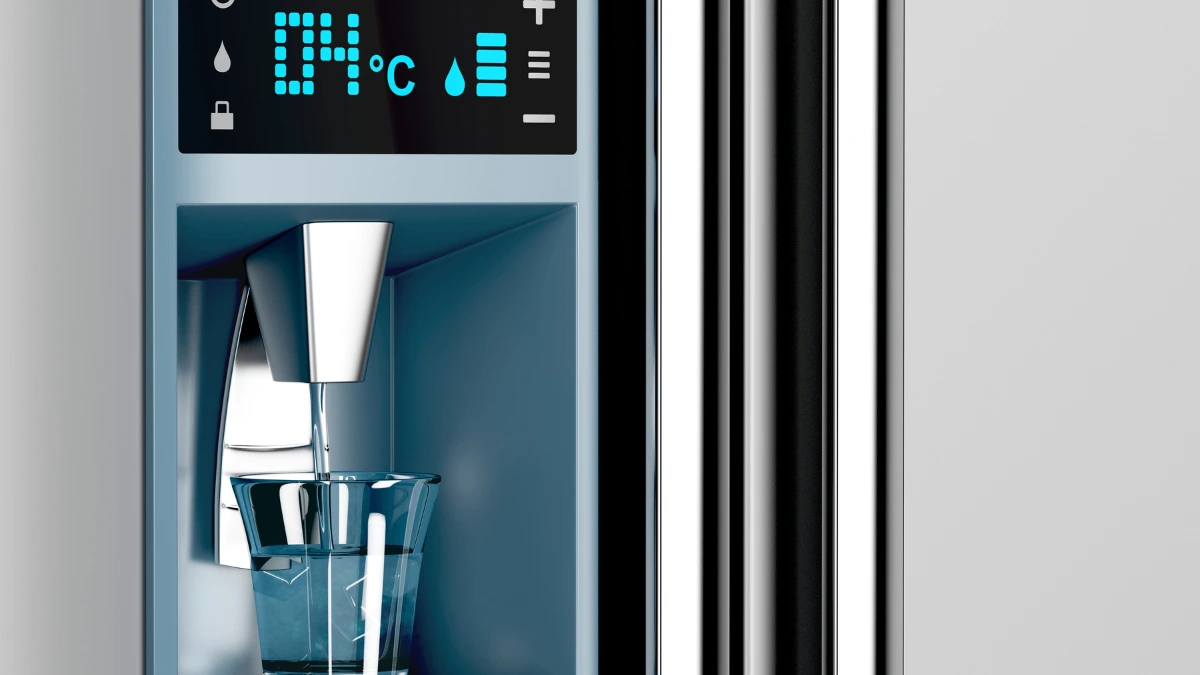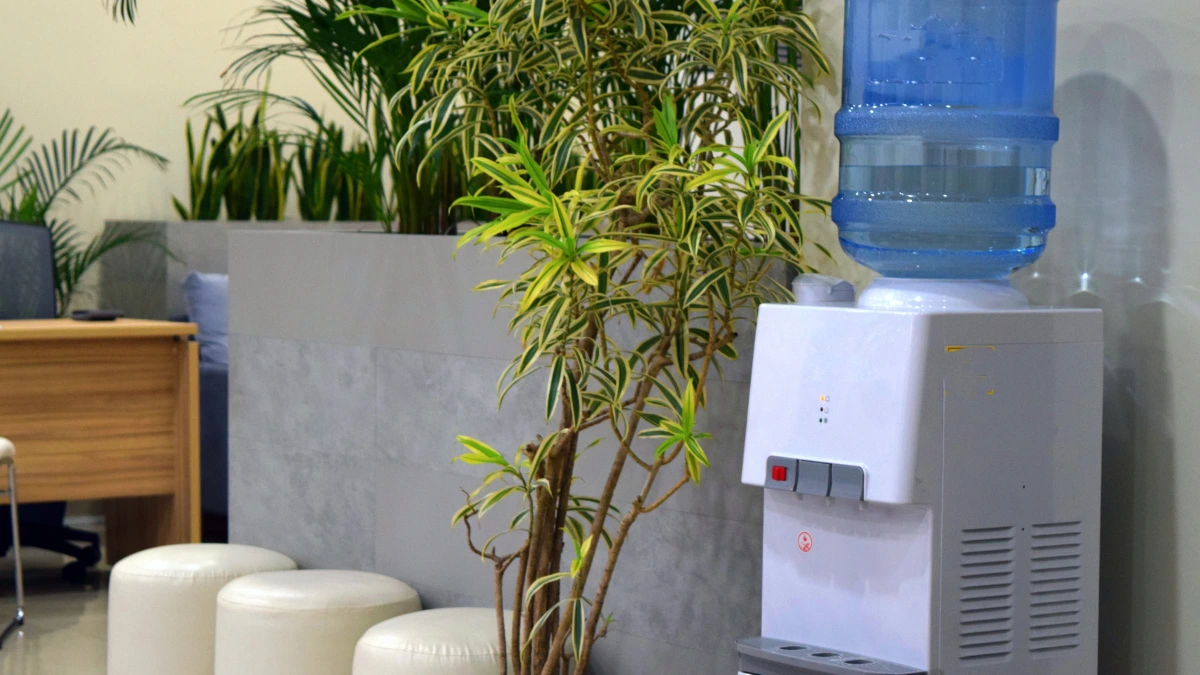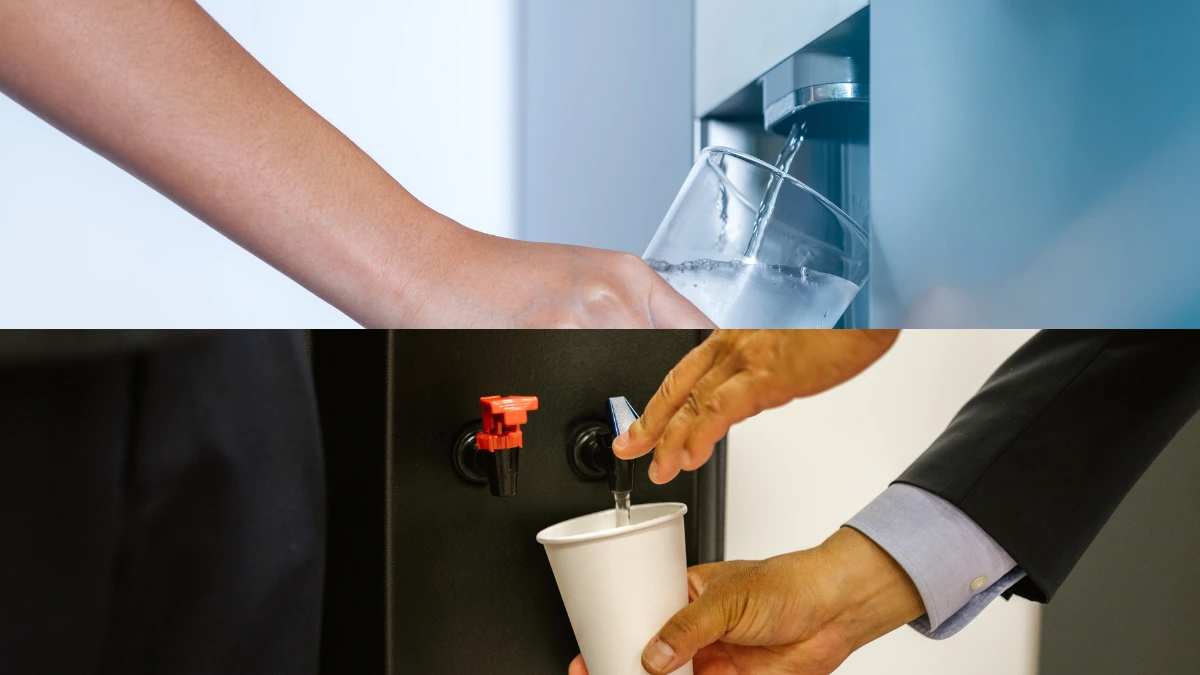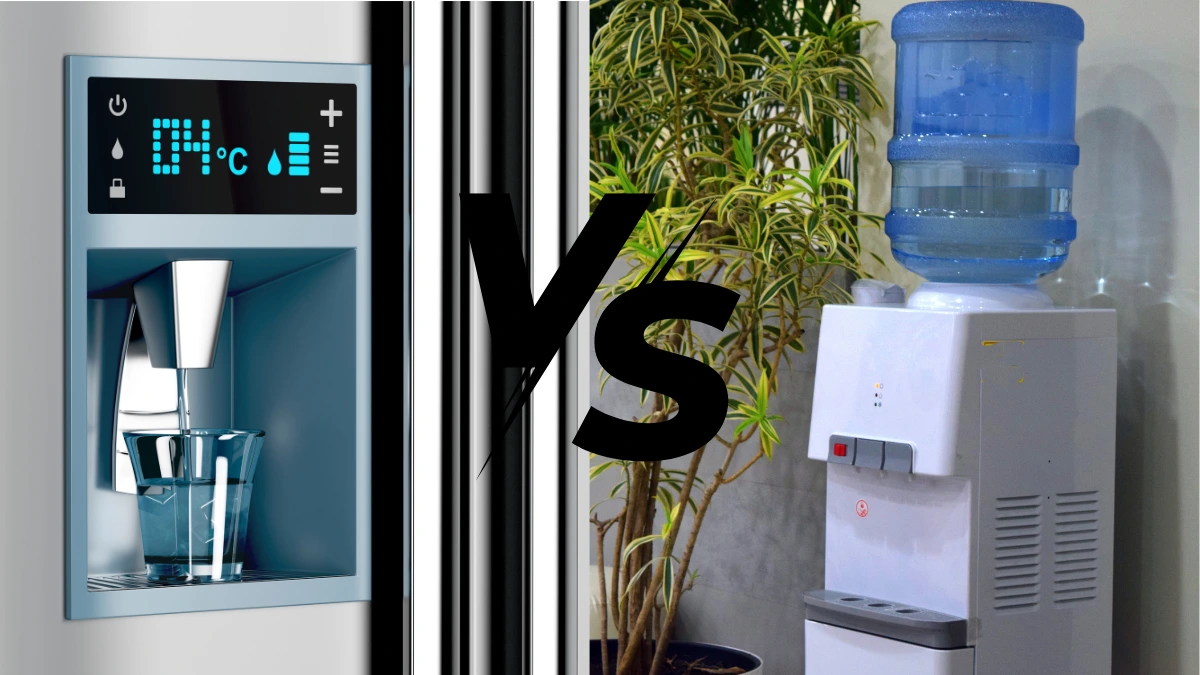Smart water dispensers and conventional dispensers are the keys to providing water for drinking. Although both maximize water for drinking, smart water dispenser vs conventional dispenser have some significant differences.
The differences between smart water dispenser vs conventional dispenser cover several aspects such as connectivity, automation, design, features, energy efficiency, price, and maintenance.
This article will delve into the important differences between smart water dispenser vs conventional dispenser to provide water for drinking.
What is a Smart Water Dispenser?

A smart water dispenser is an electronic water supply device equipped with many advanced features, such as sensors, automation features, digital temperature settings, connectivity to mobile apps via WiFi or Bluetooth, and Internet of Things (IoT) connectivity.
With a wide range of features, this device provides a comfortable, more practical, fast, and hygienic drinking water experience compared to using a regular dispenser.
What is a Conventional Dispenser?

A conventional dispenser is an electronic water supply device that is used to provide water for drinking without automation features and connectivity. These devices are usually the most advanced, having features for the choice of hot, cold, or normal water, without the need for manual boiling or cooling.
The Differences of Smart Water Dispenser vs Conventional Dispenser

Smart water dispensers and conventional dispensers are both used to provide water for drinking, but they have some differences. Here are seven pure differences between smart water dispenser vs conventional dispenser:
1. Connectivity
Smart water dispenser: Has connectivity with smartphone apps, with Bluetooth technology and Internet of Things (IoT) connectivity.
Conventional dispenser: Does not have connectivity to either the smartphone app or the IoT.
2. Automation
Smart water dispenser: Uses an infrared sensor to automate the dispensing of water when the glass is placed in the appropriate position.
Conventional dispenser: Does not have any automation sensor.
3. Design
Smart water dispenser: Has more value in terms of design, with a modern shape, and is equipped with a touch screen.
Conventional dispenser: Has a simpler design that is less futuristic, although it can still be pleasing to the eye.
4. Features
Smart water dispenser: Equipped with many features ranging from app control, automatic sensors, integration with other smart devices, child lock, and energy-saving mode. Some models have other features such as temperature control, voice control, UV sterilization, and multi-layer filtration.
Conventional dispenser: Only has three main functions, namely hot water, cold water, and normal temperature water.
5. Energy efficiency
Smart water dispenser: Has more efficient energy usage as it can automatically stand by when the dispenser is not in use without drawing electricity.
Conventional dispenser: Consumes electricity continuously without the standby feature, but with its limited functions, tends to require relatively little electricity.
6. Price
Smart water dispenser: With many features, it certainly has a higher price compared to conventional dispensers.
Conventional dispenser: More affordable price with limited features.
7. Maintenance
Smart water dispenser: Requires special attention with a more complex system.
Conventional dispenser: Easier to maintain. It is usually enough to clean the tank, the exterior, and the water faucet regularly.
Here are the differences between a smart water dispenser and a conventional dispenser in a nutshell:
| Aspect | Smart Water Dispenser | Conventional Dispenser |
| Connectivity | Smartphone apps and IoT connectivity | Does not have connectivity |
| Automation | Yes, infrared sensor to automate the dispensing of water | Does not have any automation |
| Design | Modern shape and touch screen | Simpler design |
| Features | Equipped with many features (app control, automatic sensors, ect) | Hot water, cold water, and normal temperature water |
| Energy efficiency | More efficient energy usage with automatically standby | Relatively little electricity |
| Price | Higher price | More affordable |
| Maintenance | Requires special attention | Easier to maintain |
That’s the difference between smart water dispenser vs conventional dispenser that can be your consideration in choosing according to your personal needs.
If you need modern features to support your smart home automation, a smart water dispenser is a great choice that can modernize drinking water to a high level. However, if you only need it for simple daily drinking needs, you can choose a conventional dispenser. [UN]

